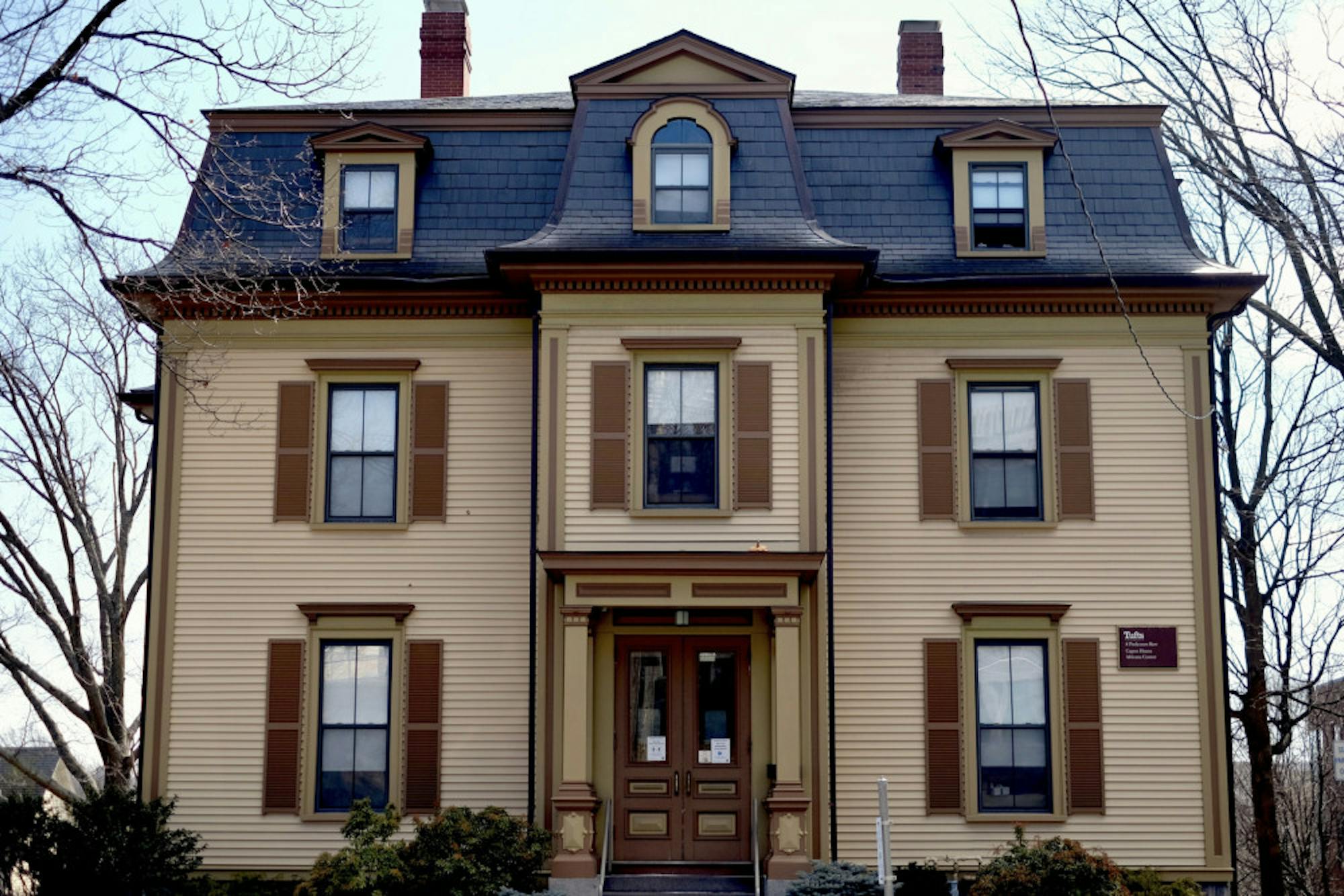A celebration in honor of Rev. Martin Luther King Jr. was held on Jan. 30 by the Tisch College of Civic Life in collaboration with the Africana Center, the President’s Office, the University Chaplaincy and the Provost’s Office. The event, which was held in Breed Memorial Hall, featured keynote speaker Régine Jean-Charles, as well as student voices and a cappella groups.
University Chaplain Elyse Nelson Winger delivered the opening remarks of the event and welcomed students, alumni, faculty and staff to the annual celebration.
“Tonight we gather to revere, reflect upon and reclaim the still prophetic words as witness of Rev. Dr. King and the civil rights activists, scholars, singers, preachers and poets who worked alongside him,” Winger said.
Winger introduced the three students who won this year’s MLK Student Voices Award, which invited a creative response to the question, “What does love and creativity look like in the service of action for love and justice?”
The committee selected three winners: first-year Andrew Harris, sophomore Marsha Germain and sophomore Ayomide Oloyede. Harris’s photography, as part of his collection entitled “Black Tufts,” was on display at the event.
“These wonderful photos do what [Harris] described they would, they ‘celebrate and uplift our power, beauty, resilience, and ultimately, voices,’” Winger said.
Oloyede presented his winning spoken word poem “I Wish for a Rose Garden,” inspired by Tupac Shakur’s “The Rose That Grew from Concrete.”
Following the student presentations, Africana Center director Katrina Moore led the group in a moment of silence for victims of gun violence and police brutality. Moore introduced the theme of this year’s celebration, “We Don’t Have Much Time: Raising Consciousness and Building the Future Now.” This year’s program, Moore said, was inspired by a series of lectures that Dr. King delivered in November and December 1968 that were published as a book entitled “The Trumpet of Conscience.”
“Our program is guided by a quote from this book which reads, ‘But we don’t have much time, the revolutionary spirit is already worldwide. If the anger of the peoples of the world at the injustice of things is to be channeled into a revolution of love and creativity, we must begin work now urgently with all peoples to shape a new world,’” Moore said.
“This year’s program is also timely as we grapple with the senseless violence that continues to plague this country to remind us of the importance of our work to affect change,” Moore continued.
Following performances from the Ladies of Essence and S-Factor, both campus a cappella groups, University President Anthony Monaco reflected on the significance of the event.
“We’ve hosted this event since 2014 … and it does offer that opportunity for us to reflect and to recommit ourselves to Dr. King’s vision for a more equitable world,” Monaco said. “It’s also an opportunity to celebrate the generations of men and women who came before and also have followed Dr. King’s fight against injustice and inequality and to acknowledge the work that still needs to be done here at Tufts, and certainly in the wider world.”
Monaco introduced the keynote speaker, Jean-Charles, who is the director of Africana Studies, the Dean’s Professor of Culture and Social Justice, and a professor of Africana studies and women’s, gender and sexuality studies at Northeastern University.Jean-Charles is a Black feminist literary scholar, studying race, gender and justice. She is the author of three books, including “Martin Luther King and The Trumpet of Conscience Today.”
Jean-Charles talked about her book, in which she challenges the “dominant King narrative” and encourages readers to go beyond his “I Have a Dream” speech.
“As we are dazzled by the power of King’s meticulous prose and the sonorous tenor of his speeches we fail to dig deeper into the content, even more, we fail to put those words into action,” Jean-Charles said.
Jean-Charles explained that Martin Luther King Jr.’s vision is often forgotten when we distance his message from contemporary social justice movements.
“I argue that by turning to the less examined works like the essays I focus on in my book … we can gain a fuller picture of what King stood for, and by looking at social justice movements like Black Lives Matter, like Me Too and prison abolition, through the lens of intersectionality, we can better understand how contemporary activists extend, expand and improve upon his vision,” Jean-Charles said.
The event then turned to small group discussions followed by a performance from Germain of her winning poem titled “Little Black Woman.”
The MLK Day of Community Action on Feb. 4 will allow Tufts community members to engage in service opportunities with local organizations and carry on King’s legacy through advocacy and action.






